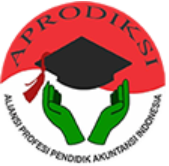FACTORS AFFECTING STUDENT LEARNING ACHIEVEMENT WITH E-LEARNING AS MODERATING VARIABLES
DOI:
https://doi.org/10.21831/jpai.v21i1.57747Abstract
This research aims to determine the effect of FoMO, Academic Stress, and Academic Burnout partially and simultaneously on Student Learning Achievement with the Use of Besmart e-learning as a moderating variable during the Covid-19 Pandemic. The population in this research were 258 students majoring in accounting education at YSU. Data collection techniques using a questionnaire. Test the validity of the instrument using the Product Moment correlation with 49 valid items and 5 falling items and the reliability test using Cronbach's Alpha formula with the results of the variables FoMO, Academic Stress, and the Use of Besmart e-learning being very reliable and Academic Burnout reliable. The analysis prerequisite test includes normality test, linearity test, multicollinearity test, and heteroscedasticity test. Hypothesis testing consists of multiple regression and moderated regression analysis. The results of this research are FoMO has no effect on Student Learning Achievement during the Covid-19 Pandemic, Academic Stress has a negative effect on Student Learning Achievement during the Covid-19 Pandemic, and Academic Burnout has a negative effect on Student Learning Achievement during the Covid-19 Pandemic.
Keywords: Student Learning Achievement, FoMO, Academic Stress, Academic Burnout, e-learning Besmart
Downloads
Published
How to Cite
Issue
Section
License
Authors who publish with Jurnal Pendidikan Akuntansi Indonesia journal agree to the following terms:
- Authors retain copyright and grant the Jurnal Pendidikan Akuntansi Indonesia journal right of first publication with the work simultaneously licensed under Creative Commons Attribution License (CC BY 4.0) that allows others to share the work with an acknowledgment of the work's authorship and initial publication in this journal.
- Authors can enter into separate, additional contractual arrangements for the non-exclusive distribution of the published version of the work (e.g., post it to an institutional repository or edit it in a book), with an acknowledgment of its initial publication in this journal.
- Authors are permitted and encouraged to post their work online (e.g., in institutional repositories or on their website) before and during the submission process, as it can lead to productive exchanges, as well as earlier and greater citation of published work.










